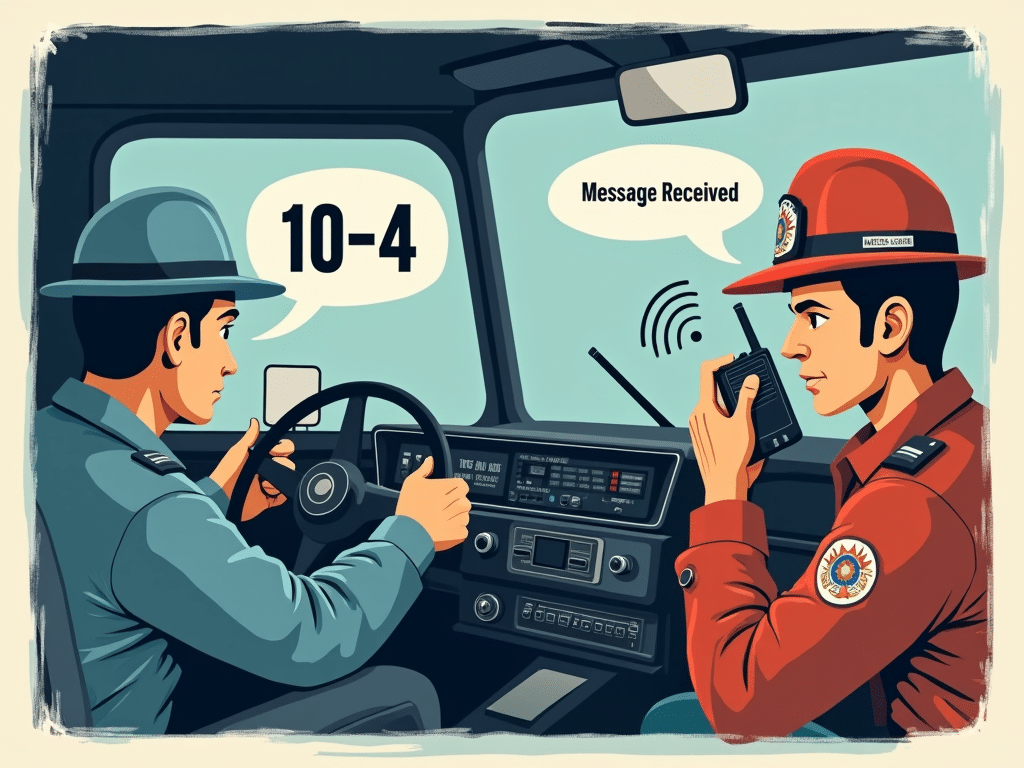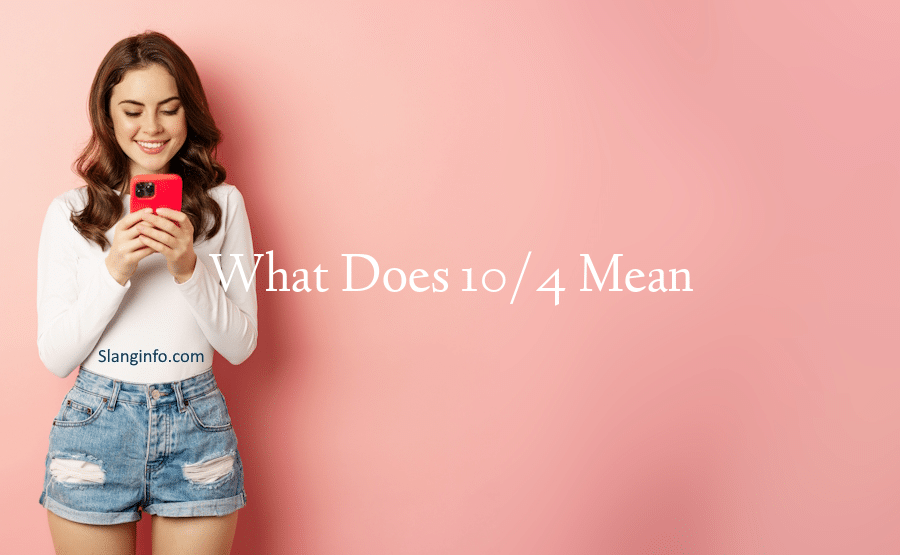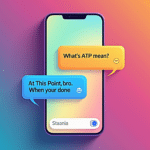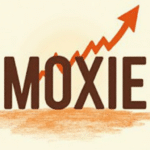Ever heard someone say “10-4” and wondered what the heck they’re talking about? Well, you’re in for a treat! This little phrase has a whole lot of history behind it, and it’s way more interesting than you might think. Let’s dive into the world of 10-4 and unpack what this popular radio code really means.
| Key Takeaways |
|---|
| 10-4 means “Message received” or “Understood” |
| It’s part of the “10-code” system used by police and emergency services |
| Originated in the 1930s to improve radio communication |
| Popularized by TV shows and movies featuring police and truckers |
| Now used casually in everyday conversation |
What Does 10-4 Mean? Decoding the Popular Radio Code

What Does 10-4 Actually Mean?
Alright, let’s cut to the chase. 10-4 is basically a fancy way of saying “Okay” or “I got it.” It’s like giving a thumbs up 👍, but with words. Here’s the deal:
- Primary meaning: “Message received” or “Understood”
- Where it’s used: Originally in police and emergency radio communications
- How it’s used now: Pretty much everywhere, from casual chats to movies
Think of it as the OG way of saying “gotcha” before emojis were a thing.
The Origin Story: Where Did 10-4 Come From?
Okay, time for a quick history lesson (I promise it won’t be boring). 10-4 didn’t just pop up out of nowhere. It’s got some serious backstory:
- 1930s: The radio is becoming a big deal, but there’s a problem – messages are often unclear.
- 1937: The Association of Public Safety Communications (APCO) decides to shake things up.
- 1940s: The “Ten Code” system is born, with 10-4 leading the pack.
- 1950s onwards: Police, truckers, and eventually the public start using these codes.
Fun fact: The “ten” in 10-4 was chosen because it was easy for radios to transmit clearly. It’s like the radio equivalent of speaking slowly and clearly!
How 10-4 Became Cool
So how did a boring old radio code become something everyone knows? Two words: Hollywood, baby! 🎬
- TV Shows: Crime dramas like “Highway Patrol” made 10-4 sound super cool.
- Movies: The 1978 film “Convoy” about truckers made CB radio slang popular.
- Pop Culture: Soon, everyone was trying to sound like a cop or a trucker.
It’s kind of like how YOLO went from a Drake song to something your grandma says. These things have a way of catching on!
10-4 and Its Code Buddies

10-4 isn’t a lone wolf. It’s part of a whole family of codes. Check out some of its cousins:
| Code | Meaning |
|---|---|
| 10-1 | Signal weak |
| 10-2 | Signal good |
| 10-3 | Stop transmitting |
| 10-4 | Acknowledgement (OK) |
| 10-10 | Fight in progress |
| 10-33 | Emergency |
Imagine trying to remember all of these during an emergency! It’s like learning a whole new language.
Using 10-4 in Real Life
Now, you might be thinking, “Cool story, bro, but how do I use this without sounding like a wannabe cop?” Here’s the lowdown:
- Casual agreement: “Want to grab pizza later?” “10-4, good buddy!”
- Confirming plans: “I’ll pick you up at 8.” “10-4, see you then!”
- Ending a conversation: “Alright, I gotta run.” “10-4, catch you later!”
Just remember, like any slang, it’s all about context. Maybe don’t use it in your next job interview, unless you’re applying to be a trucker or a radio DJ!
The Impact of 10-4 on Communication
Let’s get a bit deep for a sec. 10-4 isn’t just a cool phrase – it actually changed the game in communication. Here’s how:
- Clarity in Chaos: In emergencies, clear communication can save lives. 10-4 cuts through the noise.
- Efficiency: Why say “I understand and will comply” when 10-4 does the trick?
- Universal Language: Even if you don’t speak the same language, 10-4 is pretty universally understood.
It’s like the GOAT of confirmation codes. Simple, effective, and gets the job done.
10-4 in the Digital Age
You might think 10-4 is old school, but it’s still kicking in our high-tech world:
- Text Messages: “10-4” is quicker to type than “I understand”
- Online Gaming: Gamers use it for quick acknowledgments
- Social Media: It’s a snappy way to agree in comments
It’s like 10-4 got a digital makeover. Same meaning, new platforms!
Alternatives to 10-4: The New Kids on the Block
While 10-4 is still going strong, there are some new contenders in town:
- “Copy that”: Another radio term that’s gone mainstream
- “Roger that”: A military favorite that civilians love
- “Gotcha”: The casual, everyday version
- 👍 or 👌: For when you’re too lazy to type
These are like the cool younger siblings of 10-4. They’re trying to be hip, but let’s be real – 10-4 is the OG.
The Future of 10-4: What’s Next?
So, where’s 10-4 headed? Here are some educated guesses:
- AI Integration: Maybe Siri will start responding with “10-4” instead of “Okay”
- New Variations: We might see “20-8” for extra emphasis (double the confirmation!)
- Global Adoption: As English slang spreads, 10-4 might become even more international
Who knows? Maybe in 50 years, we’ll be using 10-4 to communicate with aliens! 👽
10-4 Etiquette: Do’s and Don’ts
Let’s wrap this up with some quick do’s and don’ts to keep you 10-4 savvy:
Do:
- Use 10-4 in casual, friendly settings
- Throw it in for a bit of retro flair
- Use it when you want to sound decisive
Don’t:
- Overuse it – it can get old real quick
- Use it in formal or professional settings (unless you’re actually a cop or trucker)
- Expect everyone to understand it, especially in international conversations
Wrapping It Up: 10-4 in a Nutshell
So there you have it – 10-4 demystified! It’s more than just a random number-letter combo; it’s a piece of communication history that’s still relevant today. Whether you’re spilling the tea with friends or trying to sound cool in a group chat, 10-4 is there to help you confirm in style.
Remember, language is always evolving. 10-4 might be the cool kid on the block now, but who knows what the next big confirmation code will be? Stay curious, stay communicative, and most importantly, have fun with it!
Got any funny 10-4 stories? Drop them in the comments below! And if you’re hungry for more slang knowledge, check out our articles on LMAO and BRB. Keep slaying that communication game! 😎
P.S. If anyone ever hits you with a 10-4 and you’re not sure how to respond, just hit ’em back with a “Roger that!” It’s like the secret handshake of the radio code world.







